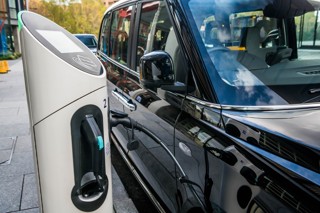Birmingham City Council’s plan for a Clean Air Zone (CAZ) to help tackle air pollution in the city has received Government approval.
The council submitted its full business case in February after being required by the Government to achieve compliant air quality limits in the shortest possible time.
Environment minister Dr Therese Coffey has now written to the council to confirm that its plans for a Class D charging CAZ – charging all but the cleanest cars, vans and trucks – and a package of additional measures have been approved.
The CAZ, which will cover all roads within the A4540 Middleway ring road, is due to come into effect from January 2020. Cars, taxis and vans will pay £8 per day to enter the zone, while HGVs and buses will be charged £50.
The Government announced it allocate £14.2m from its Implementation Fund for the delivery of signs, cameras and other infrastructure, and £38m from the Clean Air Fund to support a package of mitigation measures to support businesses and individuals.
The council had requested £68.7m from Government to fund the zone, with £51m earmarked for a range of mitigation measures (fleetnews.co.uk, February 20).
However, Councillor Waseem Zaffar, cabinet member for transport and environment at Birmingham City Council, said: “We feel that we will have sufficient resources to get the balance right between introducing a very much needed Clean Air Zone and supporting the communities and businesses potentially affected by these measures.”
There will be one-year exemptions for commercial vehicles registered within the zone and one-year exemptions for those registered in the Birmingham area and travelling into the zone, which have an existing finance agreement beyond 2020.
Both exemptions will be limited to two vehicles per business.
It has earmarked nearly £15m to support the taxi community, both Hackney carriage and private hire drivers, to upgrade to cleaner and greener vehicles.
However, Zaffar said: “In light of the reduced funding for a scrappage scheme, we will continue to work with other council leaders and combined authorities across the country to lobby the Government for a national diesel scrappage scheme.”
Chris Yarsley, policy manager for the Midlands at the Freight Transport Association (FTA), said: “Birmingham City Council has bucked the trend set by other cities across the country to produce an air quality plan that protects the health of both its citizens as well as that of the local economy.
"Following a succession of disastrous CAZ proposals in cities including Bath, Leeds and Manchester, which all failed to consider the needs of local and small business, FTA is pleased Birmingham City Council has taken FTA’s advice on board when formulating its plans.
"By granting a one-year exemption for commercial vehicles currently registered within the zone or those registered in the wider Birmingham area which have an existing finance agreement beyond 2020, it recognises the financial burden that prematurely upgrading vehicles places upon local or small businesses.
“FTA is also pleased that the council has refrained from placing the responsibility for improving air quality solely on the shoulders of businesses, when drivers of all types of vehicles – for both private and commercial use – must play their part; it is refreshing to see private cars also included in the zone.”
The £38m of support from the Clean Air Fund will be used to support the following schemes:
- £10.84m to provide mobility support for individuals working with the Clean Air Zone (of which at least 50% must be used for a scrappage scheme)
- £5m for a Hackney carriage support package
- £2.75m for a council-run Hackney carriage leasing scheme
- £7m for a private hire vehicle upgrade package
- £10.05m for an HGV and coach compliance fund
- £0.35m for supporting engagement and awareness activity
- £1.97m to support the administrations of the above schemes and mitigations
Exemptions from the Clean Air Zone charge are as follows, along with the time period the exemption will last:
- Commercial vehicles registered within the Clean Air Zone (LGV/HGV/coaches – maximum 2 vehicles per company) – 1 year
- Commercial vehicles registered within the Birmingham area travelling to the Clean Air Zone with an existing finance agreement beyond 2020 (LGV/HGV/coaches – maximum 2 vehicles per company) – 1 year
- Residents living within the Clean Air Zone, who have their private vehicles registered to their address - 2 years
- Individuals travelling into the Clean Air Zone for work – 1 year
- Visitors to key hospitals, GP offices and care homes within the Clean Air Zone – duration of stay, with exemption running for 1 year
- Vans and minibuses registered as providing essential community and school transport services that are classified as section 19 operators, registered for operation in Birmingham – 1 year
- Vehicles registered with disabled tax class – exempted for the duration of the CAZ






















Login to comment
Comments
No comments have been made yet.